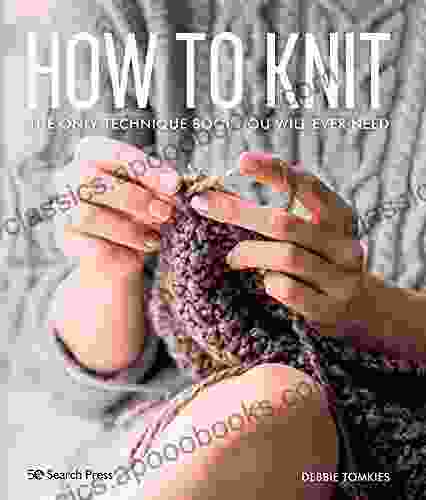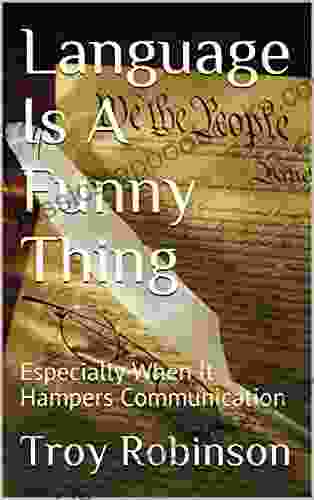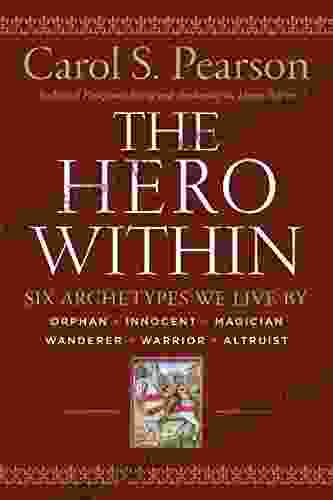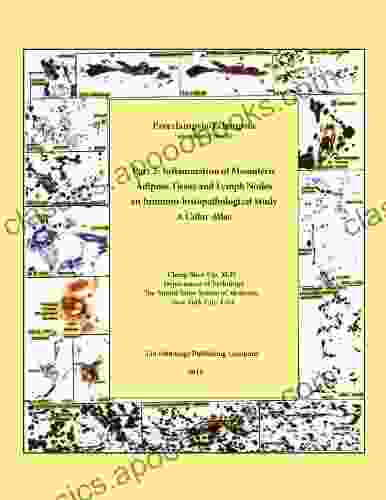The Power of Listening: Especially When It Hampers Communication

In an era defined by incessant communication, the art of listening has become an undervalued commodity. We spend countless hours sending messages, but how much time do we dedicate to truly listening? Listening is not merely the passive act of receiving sound waves; it is an active and multifaceted process that involves understanding, interpreting, and responding to the messages we receive. It is a skill that can be cultivated and perfected, and its benefits extend far beyond improved communication.
- Enhanced Communication: Active listening fosters effective communication by ensuring that all parties involved feel heard and understood. When we listen attentively, we demonstrate respect for the speaker, build trust, and create a safe and open environment for dialogue.
- Improved Relationships: Strong relationships are built on the foundation of effective communication. Active listening allows us to connect with others on a deeper level, understand their perspectives, and resolve conflicts more amicably.
- Increased Knowledge and Understanding: By actively listening, we absorb information and knowledge from others. We gain insights into different cultures, perspectives, and experiences, which broadens our horizons and deepens our understanding of the world around us.
- Reduced Stress and Anxiety: When we listen attentively, we give the speaker our undivided attention. This act of mindfulness helps us to slow down, de-stress, and focus on the present moment.
- Increased Empathy: Active listening fosters empathy by allowing us to step into the shoes of others and see the world from their perspective. It helps us to understand their feelings, motivations, and needs.
While listening may seem like a straightforward skill, there are several barriers that can hinder our ability to listen effectively.
- Distractions: In today's fast-paced world, we are constantly bombarded with distractions. From smartphones to social media, there are countless things vying for our attention. To listen effectively, we need to minimize distractions and create a quiet and focused environment.
- Preconceived Notions: Our own beliefs, prejudices, and experiences can influence our ability to listen objectively. We may tend to discount or dismiss information that does not align with our existing views. To overcome this barrier, we need to approach conversations with an open mind and be willing to challenge our assumptions.
- Emotional Reactions: Strong emotions can cloud our judgment and make it difficult to listen attentively. When we feel angry, defensive, or anxious, it is important to take a step back and regulate our emotions before engaging in a conversation.
- Lack of Interest: If we are not interested in what the speaker has to say, it is easy to become distracted or disengaged. To overcome this barrier, we need to find ways to stay motivated and focused, even when the topic is not particularly engaging.
- Cultural Differences: Cultural differences can also affect the way we listen and communicate. For example, in some cultures, it may be considered impolite to interrupt a speaker, while in other cultures, interruptions are seen as a sign of engagement. To avoid misunderstandings, it is important to be aware of the cultural norms of the people we are communicating with.
Becoming an effective listener takes practice and effort. Here are some tips to help you improve your listening skills:
4.4 out of 5
| Language | : | English |
| File size | : | 1759 KB |
| Text-to-Speech | : | Enabled |
| Screen Reader | : | Supported |
| Enhanced typesetting | : | Enabled |
| Word Wise | : | Enabled |
| Print length | : | 19 pages |
| Lending | : | Enabled |
- Pay Full Attention: Give the speaker your undivided attention. Make eye contact, lean in, and minimize distractions.
- Be Patient: Allow the speaker to finish speaking before you respond. Do not interrupt or try to finish their sentences.
- Use Nonverbal Cues: Nod your head, smile, or ask clarifying questions to show that you are engaged and understanding the speaker.
- Reflect and Summarize: Repeat back what the speaker has said in your own words to ensure that you have understood their message correctly.
- Ask Questions: Ask questions to clarify the speaker's points or to show that you are interested in their perspective.
- Be Empathetic: Try to see things from the speaker's perspective and understand their feelings and motivations.
- Be Non-Judgmental: Avoid making assumptions or judgments about the speaker or their message. Instead, approach the conversation with an open and curious mind.
- Practice Regularly: Effective listening is a skill that improves with practice. Make a conscious effort to listen actively in all your interactions, both personal and professional.
In an age where communication is more prevalent than ever, the art of listening has become increasingly important. By cultivating our listening skills, we can enhance our communication, improve our relationships, increase our knowledge, and reduce stress. By overcoming the barriers to effective listening and practicing regularly, we can unlock the transformative power of listening and reap its countless benefits. Remember, true listening is not just about hearing words; it is about understanding the message behind them, and responding with empathy and understanding.
4.4 out of 5
| Language | : | English |
| File size | : | 1759 KB |
| Text-to-Speech | : | Enabled |
| Screen Reader | : | Supported |
| Enhanced typesetting | : | Enabled |
| Word Wise | : | Enabled |
| Print length | : | 19 pages |
| Lending | : | Enabled |
Do you want to contribute by writing guest posts on this blog?
Please contact us and send us a resume of previous articles that you have written.
 Book
Book Novel
Novel Page
Page Chapter
Chapter Text
Text Story
Story Genre
Genre Reader
Reader Library
Library Paperback
Paperback E-book
E-book Magazine
Magazine Newspaper
Newspaper Paragraph
Paragraph Sentence
Sentence Bookmark
Bookmark Shelf
Shelf Glossary
Glossary Bibliography
Bibliography Foreword
Foreword Preface
Preface Synopsis
Synopsis Annotation
Annotation Footnote
Footnote Manuscript
Manuscript Scroll
Scroll Codex
Codex Tome
Tome Bestseller
Bestseller Classics
Classics Library card
Library card Narrative
Narrative Biography
Biography Autobiography
Autobiography Memoir
Memoir Reference
Reference Encyclopedia
Encyclopedia Janice Hallett
Janice Hallett David G Tompkins
David G Tompkins Martina Boone
Martina Boone Andrei Besedin
Andrei Besedin Andrew Grant
Andrew Grant Maryse Meijer
Maryse Meijer Susan Johnson
Susan Johnson Andy Stanley
Andy Stanley Jacques Bernier
Jacques Bernier Andrea Wcislek
Andrea Wcislek Katherine E Knutson
Katherine E Knutson Andrew Schulman
Andrew Schulman Olivier Morel
Olivier Morel Andrew G Lee
Andrew G Lee Andrew Forkner
Andrew Forkner Geoffrey Blainey
Geoffrey Blainey William A Galston
William A Galston Ethan Williams
Ethan Williams Andrew Bovell
Andrew Bovell Mark D Miller
Mark D Miller
Light bulbAdvertise smarter! Our strategic ad space ensures maximum exposure. Reserve your spot today!

 Steven HayesUnveiling the Untold Stories: John Curtin War Volume II Explores Australia's...
Steven HayesUnveiling the Untold Stories: John Curtin War Volume II Explores Australia's...
 W. Somerset MaughamFrom the Ashes of Eritrea: A Remarkable Journey of Hope and Redemption
W. Somerset MaughamFrom the Ashes of Eritrea: A Remarkable Journey of Hope and Redemption Eugene PowellFollow ·3.6k
Eugene PowellFollow ·3.6k Blake BellFollow ·14.6k
Blake BellFollow ·14.6k Shane BlairFollow ·18.2k
Shane BlairFollow ·18.2k Leo MitchellFollow ·11.1k
Leo MitchellFollow ·11.1k Patrick RothfussFollow ·14.1k
Patrick RothfussFollow ·14.1k Willie BlairFollow ·16.1k
Willie BlairFollow ·16.1k Tyler NelsonFollow ·18.7k
Tyler NelsonFollow ·18.7k Fernando PessoaFollow ·8.9k
Fernando PessoaFollow ·8.9k

 Devin Ross
Devin RossUnlocking the Secrets of the Mind: Brain Mapping...
The human...

 Jacob Foster
Jacob FosterNovel of Misconception, Truth, and Love: A Journey of...
Unraveling the Lies We...

 Benji Powell
Benji PowellThe Only Technique You Will Ever Need: Unlocking the...
By [Author's...

 Pete Blair
Pete BlairUnveiling the Enchanting World of 'Magnolia House' by...
A Literary...
4.4 out of 5
| Language | : | English |
| File size | : | 1759 KB |
| Text-to-Speech | : | Enabled |
| Screen Reader | : | Supported |
| Enhanced typesetting | : | Enabled |
| Word Wise | : | Enabled |
| Print length | : | 19 pages |
| Lending | : | Enabled |












